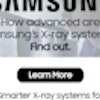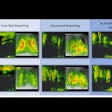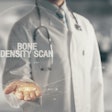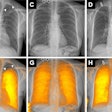Medicare Advantage beneficiaries have significantly lower rates of angiography and percutaneous coronary interventions (PCI) than Medicare fee-for-service beneficiaries, according to a study published in the July 10 issue of the Journal of the American Medical Association.
The study included nearly 6 million Medicare Advantage and Medicare fee-for-service beneficiaries from 12 states from 2003 to 2007. Results showed that Medicare Advantage patients had lower age-, sex-, race-, and income-adjusted procedure rates for angiography (16.5 per 1,000 person-years versus 25.9 per 1,000 person-years in Medicare fee-for-service patients).
Significant differences were also found in PCI rates (6.8 per 1,000 person-years in Medicare Advantage patients versus 9.8 per 1,000 person-years in Medicare fee-for-service patients). The differences were statistically significant (p < 0.001) in both cases.
No significant differences were found, however, in urgent angiography studies or coronary artery bypass graft (CABG) surgery, according to the multi-institutional research group led by Dr. Daniel Matlock from the University of Colorado (JAMA, Vol. 310:2, pp. 155-162).
In other findings, there was wide geographic variation in procedure rates across hospital referral regions among Medicare Advantage patients and Medicare fee-for-service patients. Across regions, no statistically significant correlation was found between both sets of beneficiaries for angiography, and a modest correlation was discovered for PCI and CABG surgery.
Adjustment for additional cardiac risk factors also had little influence on procedure rates among Medicare Advantage beneficiaries.



















